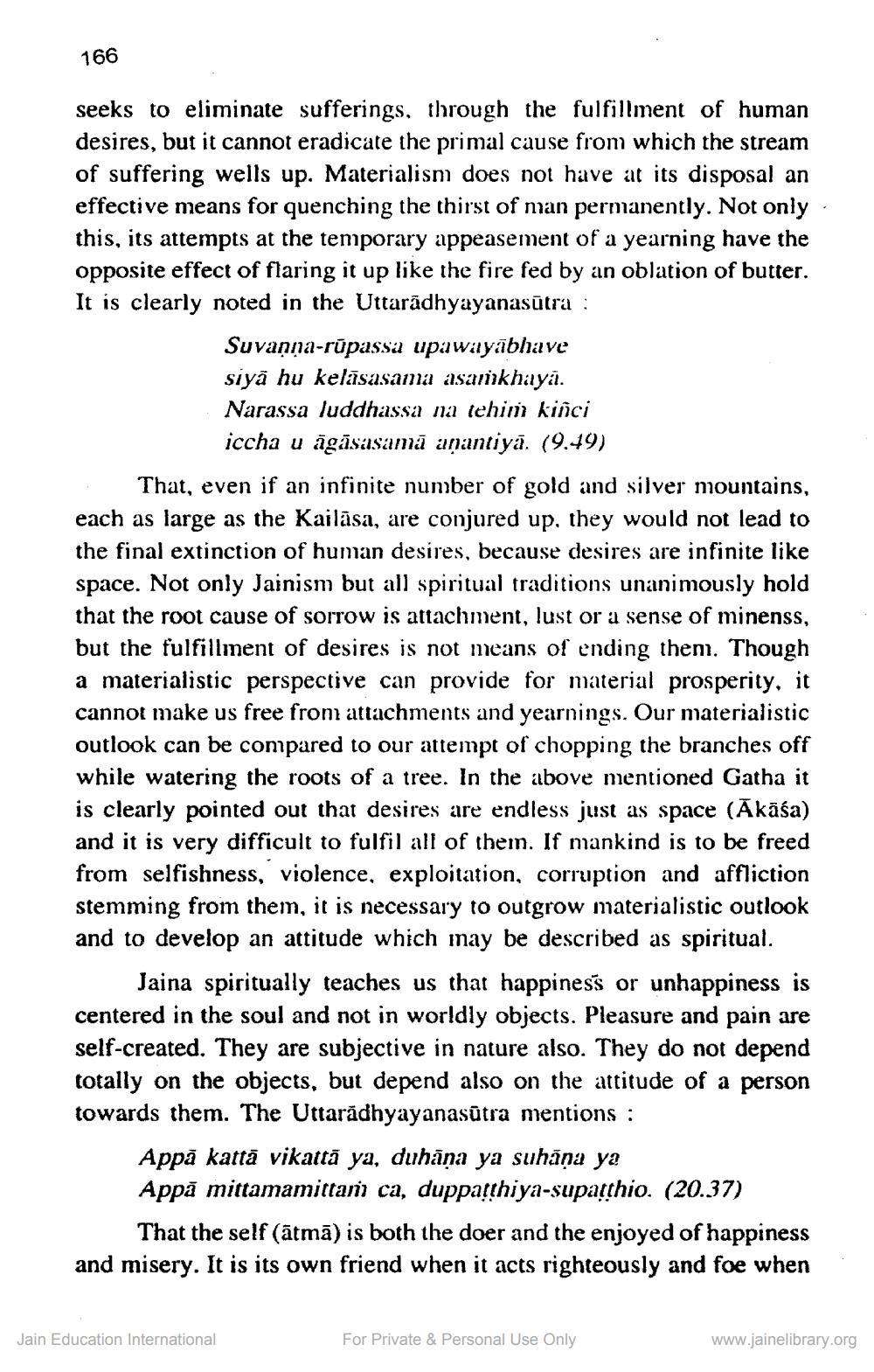________________
166
seeks to eliminate sufferings, through the fulfillment of human desires, but it cannot eradicate the primal cause from which the stream of suffering wells up. Materialism does not have at its disposal an effective means for quenching the thirst of man permanently. Not only this, its attempts at the temporary appeasement of a yearning have the opposite effect of flaring it up like the fire fed by an oblation of butter. It is clearly noted in the Uttaradhyayanasūtra
Suvaṇṇa-rūpassa upawayābhave siya hu kelasasama asaṁkhaya.
Narassa luddhassa na tehim kinci iccha u āgāsasamā aṇantiyā. (9.49)
That, even if an infinite number of gold and silver mountains, each as large as the Kailasa, are conjured up, they would not lead to the final extinction of human desires, because desires are infinite like space. Not only Jainism but all spiritual traditions unanimously hold that the root cause of sorrow is attachment, lust or a sense of minenss, but the fulfillment of desires is not means of ending them. Though a materialistic perspective can provide for material prosperity, it cannot make us free from attachments and yearnings. Our materialistic outlook can be compared to our attempt of chopping the branches off while watering the roots of a tree. In the above mentioned Gatha it is clearly pointed out that desires are endless just as space (Ākāśa) and it is very difficult to fulfil all of them. If mankind is to be freed from selfishness, violence, exploitation, corruption and affliction stemming from them, it is necessary to outgrow materialistic outlook and to develop an attitude which may be described as spiritual.
Jaina spiritually teaches us that happiness or unhappiness is centered in the soul and not in worldly objects. Pleasure and pain are self-created. They are subjective in nature also. They do not depend totally on the objects, but depend also on the attitude of a person towards them. The Uttaradhyayanasūtra mentions :
Appä katta vikattā ya, duhāṇa ya suhāṇa ya
Appă mittamamittam ca, duppatthiya-supatthio. (20.37)
That the self (ātmā) is both the doer and the enjoyed of happiness and misery. It is its own friend when it acts righteously and foe when
Jain Education International
For Private & Personal Use Only
www.jainelibrary.org




